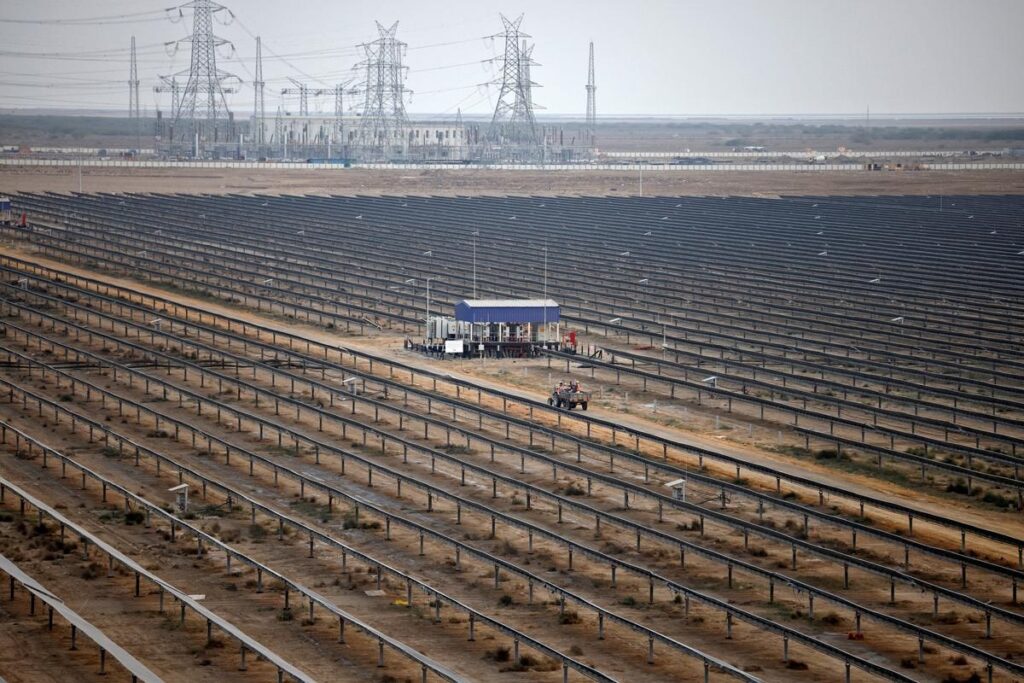As the world gears up for the COP29 climate summit in Azerbaijan this November, negotiations on global climate finance remain at an impasse. With just five months left, nearly 200 nations are struggling to agree on a new annual financing target to help developing countries combat climate change. This new target is expected to replace the previous goal of $100 billion per year, which rich countries only met two years behind schedule.
Stalled Talks in Bonn Highlight Deep Divisions
Preliminary discussions held this week in Bonn, Germany, have exposed deep-seated divisions among major economies over financial commitments to climate action. UN climate chief Simon Stiell expressed concern over the lack of progress, emphasizing the need for high-level government intervention to break the deadlock before COP29.
“We’ve left ourselves with a very steep mountain to climb,” Stiell remarked at the conclusion of the Bonn talks.
Representatives from climate-vulnerable nations expressed frustration over the inconsistent financial support from wealthy countries. Michai Robertson, a negotiator for the Alliance of Small Island States, highlighted the disparity between quick funding approvals for military spending and the slow pace of climate finance.
The Challenge of Setting a New Financing Target
Establishing a new financing target is crucial for funding projects that reduce greenhouse gas emissions and support climate resilience in poorer nations. With all countries required to update their national climate targets next year, the stakes are high. South African climate negotiator Pemy Gasela stressed that without adequate financing, developing nations cannot accelerate their emission reduction efforts.
Despite agreeing that the current $100 billion target is insufficient, wealthy countries are cautious about committing to a significantly higher figure. The previous unmet target has already created mistrust between nations, with developing countries feeling abandoned by economic powers.
Proposals and Obstacles in Bonn
During the Bonn talks, there was no consensus on a specific figure for the new target. The UN climate chief had suggested that $2.4 trillion per year is necessary to meet global climate goals, a figure far beyond what countries are willing to pledge.
The European Union and the United States acknowledged the need for an increase but did not propose specific amounts. Meanwhile, India and a coalition of Arab nations, including Saudi Arabia, the UAE, and Egypt, suggested a target exceeding $1 trillion annually. They proposed that rich nations provide $441 billion per year in public funding, which could leverage a total of $1.1 trillion from broader sources.
Small island states, particularly vulnerable to climate impacts, advocated for stricter conditions on climate finance, such as capping loan interest rates at 1% to prevent exacerbating the debt burdens of poor nations.
Debate Over Contributor Responsibilities
A contentious issue remains over which countries should contribute to the new financing goal. Currently, about two dozen long-industrialized nations are required to provide UN climate finance, a list determined in 1992 when China’s economy was relatively small.
The European Union and the United States are pushing for China, now the world’s largest CO2 emitter and second-largest economy, and wealthy Middle Eastern countries to be included as contributors. However, China and the Arab countries oppose this expansion, with Beijing maintaining its status as a developing country under the UN climate framework.
“We, the developing countries, have no intention to make your number look good or be part of your responsibility, as we are doing all we can to save the world,” China’s negotiator asserted during the Bonn talks.
Future Prospects and Ongoing Negotiations
As negotiations move slowly, the upcoming U.S. presidential election adds another layer of uncertainty. The potential return of Donald Trump, who previously withdrew the U.S. from the Paris Agreement, raises concerns about future U.S. contributions to climate finance.
With neither side willing to compromise, the road to COP29 remains fraught with challenges. Joe Thwaites of the Natural Resources Defense Council noted the sluggish progress, emphasizing the urgency for nations to find common ground.
As the countdown to the Azerbaijan summit continues, the world watches anxiously, hoping for a breakthrough that can secure the necessary funding to combat climate change effectively.

